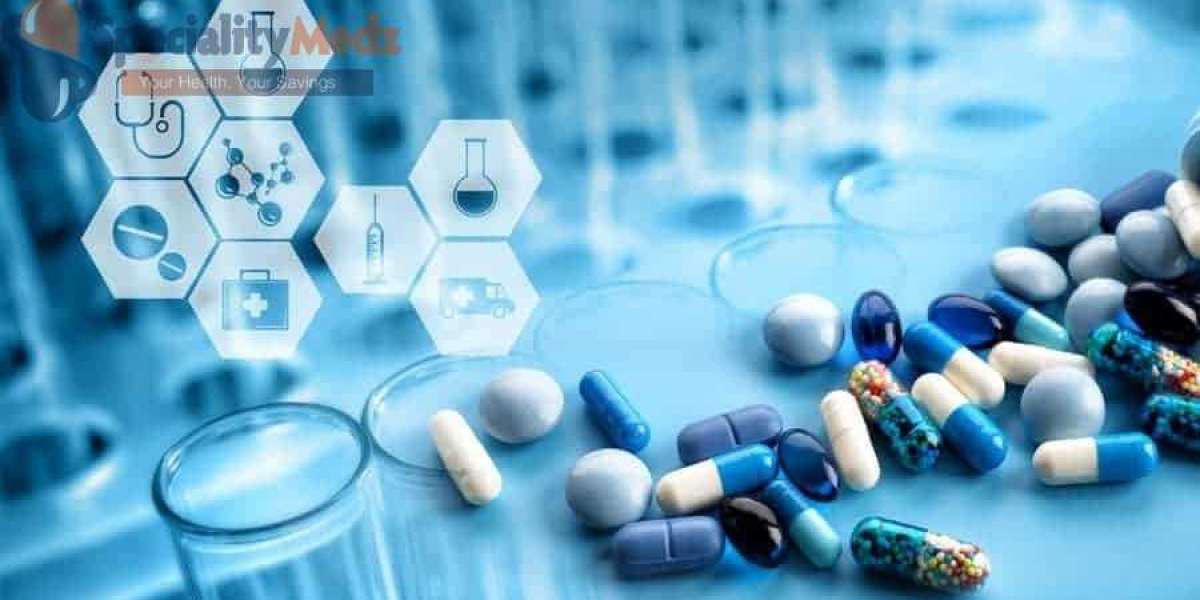Over the past century, the world has witnessed incredible advancements in medicine, with life-saving medications being a major factor in improving health and lifespan worldwide. These drugs, which range from cancer treatments to antibiotics, have completely changed the way that many diseases are treated, greatly increasing life expectancy and raising millions of people's standards of living. Gefitinib, a targeted medication used to treat non-small cell lung cancer (NSCLC), is one such recent innovation. With the availability of affordable treatments through Gefitinib Supplier, access to critical cancer therapies is expanding globally, providing more hope to patients.
The Global Impact of Life-Saving Drugs
Drugs that can save lives have proved crucial in the fight against diseases that were previously thought to be deadly or incurable. The global health landscape has transformed as a result of vaccines, antibiotics, and therapies for chronic illnesses including diabetes and heart disorders. These advancements have increased general well-being, decreased death rates, and improved disease management.
The realm of oncology is where the effects of these medications are most noticeable. Thanks to cutting-edge medications like tailored treatments, cancer—which was formerly a major cause of mortality with few treatment options—is now treatable for many individuals. At the vanguard of this change are life-saving cancer medications like Gefitinib, which provide hope to people with life-threatening diseases, especially lung cancer, which is one of the most common and lethal types of the illness.
Gefitinib: A Game Changer in Lung Cancer Treatment
The targeted medication gefitinib, which is sold under the trade name Iressa, is mostly used to treat non-small cell lung cancer (NSCLC). It was among the first drugs authorized to target the genetic mutation known as the epidermal growth factor receptor (EGFR), which is frequently seen in individuals with non-small cell lung cancer. Gefitinib stops the signals that lead cancer cells to proliferate and divide uncontrolled by blocking EGFR.
Lung cancer has historically had poor survival rates and is infamously tough to cure. However, gefitinib has significantly improved outcomes for individuals with EGFR mutations. Research indicates that as compared to standard chemotherapy, individuals treated with gefitinib have longer progression-free survival times and higher quality of life. Gefitinib is a favored choice for many people as it is a targeted therapy and typically has less adverse effects than traditional therapies.
The Role of Gefitinib Manufacturers in Global Access
Even though AstraZeneca created gefitinib first, patients have frequently been unable to obtain the medication due to its high cost, especially in low- and middle-income nations. Thankfully, more people may now afford and obtain this life-saving medication thanks to the growth of generic Gefitinib manufacturers.
Read More: specialitymedz
Global distribution of generic gefitinib is facilitated by suppliers, guaranteeing that patients in nations with little healthcare resources may obtain this essential medication. Global health initiatives and the battle against lung cancer are greatly aided by generic manufacturers and suppliers providing Gefitinib for a fraction of the price of branded equivalents.
Expanding Access to Targeted Therapies
In many underdeveloped nations, the availability of reasonably priced generics like gefitinib has revolutionized the treatment of cancer. Generic medications provide a lifeline for patients in areas where healthcare systems are unable to give cutting-edge cancer therapy because of financial difficulties. People from all socioeconomic situations may now get the same life-saving treatments that are accessible in wealthier countries because to the democratization of healthcare.
India's generic gefitinib producers are collaborating with other countries to increase access while also lowering the cost of therapy. Many of these businesses provide underprivileged people with inexpensive cancer drugs through partnerships with governmental and non-governmental groups. By reducing the disparity in healthcare access between high- and low-income nations, this strategy is guaranteeing that cancer patients worldwide have an equal chance at survival.
Challenges in the Distribution of Life-Saving Drugs
There are still difficulties in guaranteeing the worldwide delivery of life-saving medications like gefitinib, despite the numerous achievements. Logistical problems, intellectual property rights, and regulatory barriers can all affect how widely available generic drugs are. Moreover, patients could not get the most economical course of therapy because of a lack of knowledge on the accessibility of low-cost generics in some areas.
Furthermore, it is still difficult to develop and produce new, life-saving medications due to their high cost. When patents expire, generic manufacturers contribute to price reductions, but the initial development of targeted medications, such as Gefitinib, necessitates a substantial expenditure in research and clinical trials. An ongoing major problem for the pharmaceutical industry is striking a balance between cost and innovation.
The Future of Targeted Cancer Therapies
The development of new medications that give even more accuracy in targeting cancer cells has been made possible by the success of gefitinib and other targeted therapies. Drugs that specifically target genetic abnormalities are still being developed by researchers, providing cancer patients with more individualized therapy options.
As long as Gefitinib suppliers keep up their good work, cancer therapy has a bright future. Patients throughout the world will have easier access to the prescription pharmaceuticals they require as more generic versions of life-saving treatments become accessible. This will raise the overall quality of life for cancer patients in addition to increasing survival rates.
Conclusion
Gefitinib is one example of a life-saving medication that is having a significant influence on world health by giving people with serious illnesses hope. Affordable forms of this vital lung cancer medication are now available to patients worldwide because to the work of Gefitinib Exporter, guaranteeing that more people will have access to cutting-edge therapies. The prospects for improved global health and lifespan appear more promising than ever as long as the pharmaceutical sector keeps innovating and increasing access to life-saving treatments.








